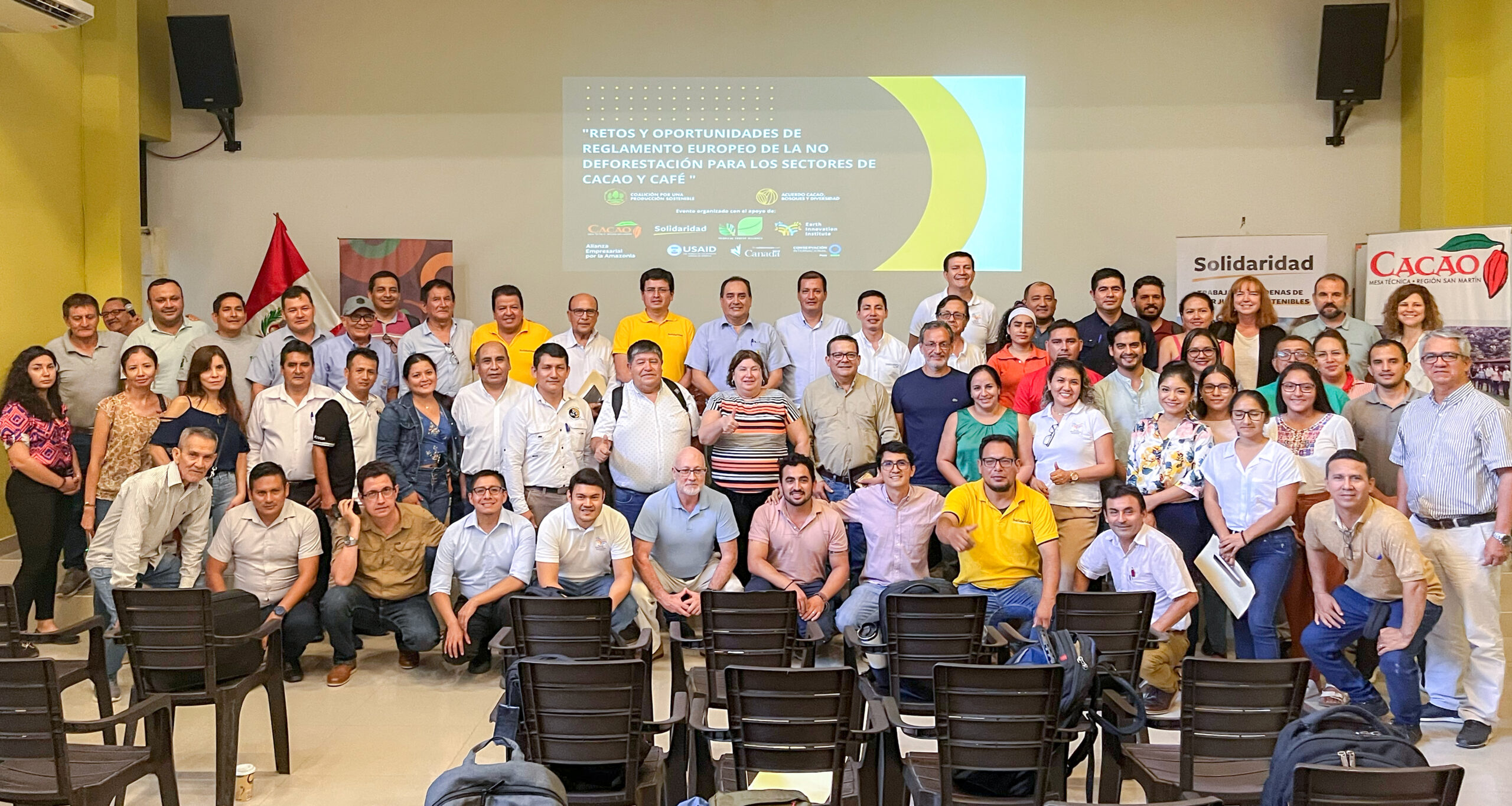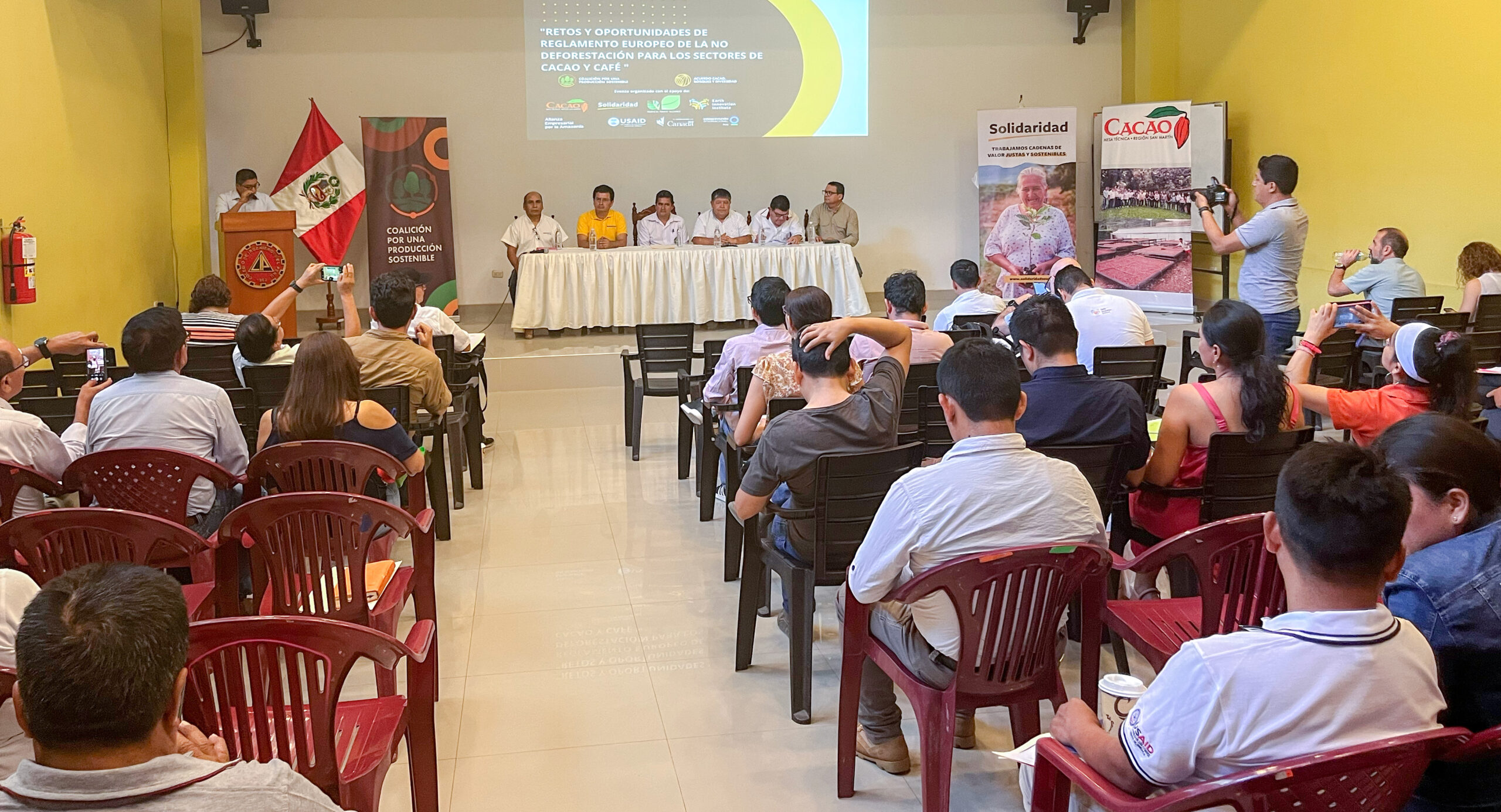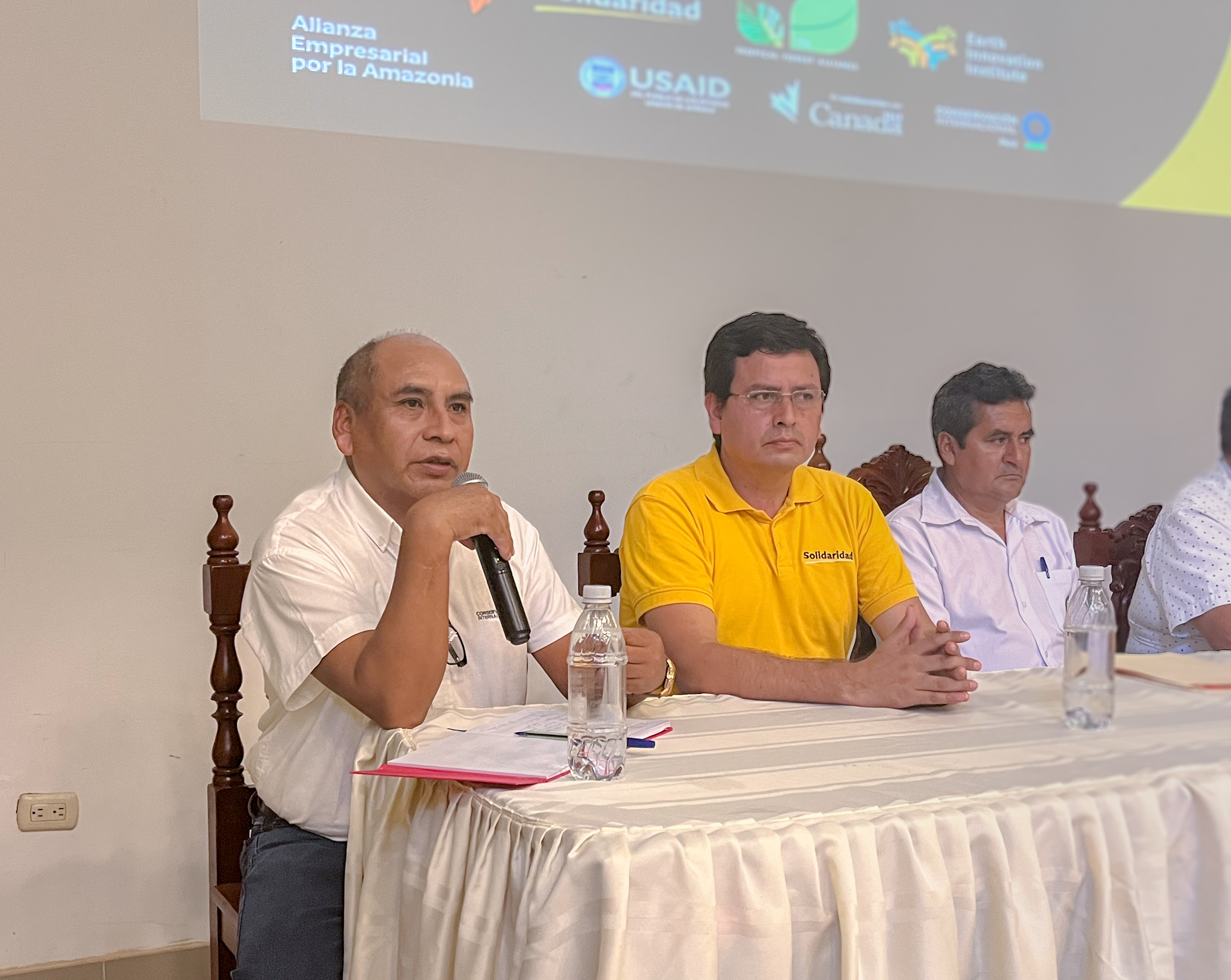

In order to create a space for dialogue on the impacts of the European Union Deforestation Regulation (EUDR), a new legislation that seeks to promote a deforestation-free commodity export market to the European Union (EU), and to address the concerns related to this regulation in the most affected value chains, the workshop "Challenges and Opportunities of the European Regulation on No Deforestation for the cocoa and coffee sectors" was held in San Martin.
This event brought together diverse actors from the coffee and cocoa sectors in the region. The presentation, co-organized by Solidaridad, the Cacao Technical Roundtable of the San Martin Region and the Amazon Business Alliance, a platform supported by USAID, the Government of Canada and Conservation International, brought together EU consultants who have visited the San Martin region to assess the impacts of the regulation on key value chain actors, who noted that the new regulation’s efforts are aimed at ensuring that forest products, such as coffee and cocoa, meet international sustainability standards and are produced legally. However, this opportunity to forge a sustainable future brings with it a number of challenges.

In the panel of experts, representatives of organizations such as ACOPAGRO, Central de Cacao de Aroma de Tocache (CECAT), COOPBAM and the Mesa Técnica del Cacao de la Región San Martín discussed the different needs to face this new scenario. They discussed the use of technological tools for product traceability, the importance of land formalization to ensure the sustainability and profitability of production, as well as the incentives needed for producers in the chains in question to comply with the requirements of the new regulations. These issues are crucial for producers in the region to maintain their presence in the European market, which buys 29% of the country’s cocoa and 51% of its coffee.
In this regard, some organizations have begun to implement changes to comply with the basic requirements of the EUDR. Jesús Díaz, manager of the Solidaridad Cocoa Program, highlights the transformations undertaken in collaboration with ACOPAGRO and CECAT, within the framework of the Amazon Business Alliance, where they have been identifying polygons of 1,400 producers between the two cooperatives.

Díaz points out that "in this case, we are working on integral polygons, which include not only cocoa cultivation, but also the forested area, committing producers to sign no deforestation agreements."
“We are interested in identifying obstacles, such as land legality, as we work with peasant, native communities and migrant peoples who need to continue exporting to the European market. It will be a big challenge, but we are committed to moving forward,”
Fiorella Burneo, EU consultant, highlights the institution’s commitment to evaluate the economic and social impact on the different chains impacted by the standard, and stresses the importance of generating alliances and promoting joint work. This includes the preparation of a map of stakeholders that includes MINAM, MINAGRI, Produce, unions and other key sectors. Javier Sanchez, EU consultant, stressed that

"Europe needs Peruvian producers, so this is a shared challenge between Peru and the EU".

Although many of the solutions are under discussion to continue developing measures that allow access to the European market, Angélica Fort, manager of Solidaridad’s Sectoral Agreements for Sustainable Production, highlights that this is an opportunity that prepares producers for the possible introduction of similar regulations in other countries, such as the United States and the United Kingdom. In addition, Fort proposes the importance of managing a range of services and incentives to help producers adapt sustainable practices that improve the quality of their products and strengthen them in the markets.
Although the measures taken by the EU to ensure traceability and legality in Peruvian forest products require collaboration between public and private actors to ensure compliance and, above all, support for Peruvian producers to continue working in a sustainable manner, there is a commitment in multiple sectors to provide technical and financial support for Peruvian producers to comply with the new regulations. The sector faces significant challenges, but also opportunities to transform production and ensure a sustainable future.